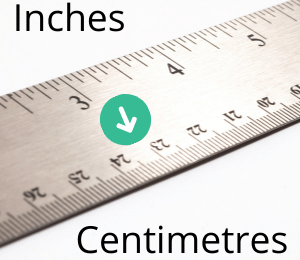Waves are an integral part of our daily lives, whether we realize it or not. From the ripples on a pond to the sound that reaches our ears, waves surround us. Understanding the fundamental properties of waves, such as their speed, is crucial in various fields, including physics, engineering, and telecommunications. To aid in this understanding, the development of the Speed of Wave Calculator has proven to be an invaluable tool. In this blog post, we will delve into the significance of wave speed, explore the different types of waves, and explain how this calculator can simplify complex calculations.
What is the speed of wave calculator
The Importance of Wave Speed:
Wave speed refers to the rate at which a wave travels through a medium. It is a fundamental characteristic that determines how quickly or slowly a wave propagates from one point to another. Understanding wave speed is essential for a wide range of applications. For example, in physics, the speed of light is a fundamental constant that helps define the behavior of electromagnetic waves. In oceanography, the speed of water waves helps predict their behavior and the impact they may have on coastal regions. By comprehending wave speed, scientists and engineers can gain valuable insights into the behavior and properties of various waves.
Types of Waves:
Waves can manifest in different forms, each characterized by unique properties and behaviors. Let’s explore some of the most common types of waves:
- Mechanical Waves: These waves require a medium, such as air, water, or solids, to propagate. Examples include sound waves, seismic waves, and water waves.
- Electromagnetic Waves: These waves can travel through a vacuum and do not require a medium for propagation. They include radio waves, microwaves, infrared waves, visible light, ultraviolet waves, X-rays, and gamma rays.
- Transverse Waves: In transverse waves, the particles of the medium oscillate perpendicular to the direction of wave propagation. Examples include water ripples and electromagnetic waves.
- Longitudinal Waves: In longitudinal waves, the particles of the medium oscillate parallel to the direction of wave propagation. Examples include sound waves and seismic waves.
The Speed of Wave Calculator:
Calculating wave speed can be a complex task, involving numerous variables and equations. However, thanks to the Speed of Wave Calculator, this process becomes much more straightforward and efficient. This online tool takes into account the relevant parameters of the wave and provides the speed value in a matter of seconds.
The Speed of Wave Calculator typically requires input values such as wavelength (λ) and frequency (f) for electromagnetic waves, or wavelength (λ) and period (T) for mechanical waves. By entering these values into the calculator, users can obtain the wave speed (v) instantly, given by the equation v = λ / T (where v represents wave speed). Some advanced calculators may include additional parameters, depending on the type of wave being analyzed.
The Benefits of Using the Speed of Wave Calculator:
- Efficiency: By automating the calculation process, the Speed of Wave Calculator saves time and effort, particularly for complex wave scenarios or large data sets.
- Accuracy: With a predefined algorithm, the calculator ensures accurate results, minimizing the risk of manual calculation errors.
- Educational Tool: The calculator serves as an excellent educational resource, helping students and researchers grasp the concept of wave speed and its relationship with other wave properties.
- Multidisciplinary Application: The Speed of Wave Calculator caters to a wide range of fields, including physics, engineering, telecommunications, and environmental sciences, making it a versatile tool for professionals and enthusiasts alike.
Benefits of using speed of wave calculator
Using the Speed of Wave Calculator offers several benefits for both professionals and enthusiasts in various fields. Here are some key advantages:
Efficiency and Time-Saving:
The Speed of Wave Calculator automates complex calculations, significantly reducing the time and effort required to determine wave speeds. Instead of manually performing calculations using equations and variables, users can obtain accurate results within seconds. This efficiency is particularly valuable when dealing with large datasets or when multiple calculations need to be performed.
Accuracy and Reliability:
The calculator employs predefined algorithms based on established equations and principles, ensuring accurate and reliable results. It eliminates the risk of human error that may occur during manual calculations, leading to more precise outcomes. This level of accuracy is crucial, especially in scientific research, engineering design, or any application where precise wave speed values are required.
Educational Tool:
The Speed of Wave Calculator serves as an educational resource, enabling students, researchers, and learners of all levels to grasp the concept of wave speed easily. By inputting various values and observing the resulting wave speeds, users can understand the relationship between different parameters, such as wavelength, frequency, or period. It promotes a deeper understanding of wave dynamics and encourages exploration and experimentation.
Multidisciplinary Application:
The Speed of Wave Calculator caters to a wide range of disciplines and industries, making it a versatile tool with applications in physics, engineering, telecommunications, environmental sciences, and more. Whether you are studying electromagnetic waves, analyzing seismic activity, or designing acoustic systems, this calculator can provide valuable insights into wave behaviors and properties specific to your field.
Accessibility and Convenience:
Online Speed of Wave Calculators are readily available and accessible from various devices, including computers, smartphones, and tablets. This accessibility ensures that the tool is always within reach, allowing users to perform wave speed calculations anytime and anywhere. It eliminates the need for specialized software or manual calculations, making it a convenient resource for professionals on the go.
Cross-Validation and Comparison:
The Speed of Wave Calculator enables users to cross-validate their results against known wave speed values or conduct comparative analyses between different scenarios. This feature allows for a deeper exploration of wave phenomena, assisting in the identification of patterns, anomalies, or discrepancies. It promotes a more comprehensive understanding of wave dynamics and aids in troubleshooting or optimization processes.
In conclusion, the Speed of Wave Calculator offers significant benefits, including increased efficiency, accuracy, educational value, multidisciplinary applications, accessibility, and the ability to cross-validate and compare results. By simplifying complex calculations, this tool empowers users to explore and understand the fascinating world of waves more effectively, enabling advancements in various scientific, technological, and practical applications.
Conclusion
Understanding wave speed is crucial for comprehending the behavior and properties of different waves. The Speed of Wave Calculator simplifies the process of calculating wave speed.
FAQs
What is the Speed of Wave Calculator?
The Calculator is an online tool that allows users to calculate the speed of different types of waves quickly. It simplifies complex calculations by considering relevant parameters, such as wavelength, frequency, or period, depending on the type of wave. By entering the required values into the calculator, users can obtain the speed instantly.
What types of waves can the calculator handle?
The Calculator can handle various types of waves, including mechanical waves (such as sound waves and water waves) and electromagnetic waves (such as radio waves, light waves, and X-rays). It is designed to accommodate different wave properties and the corresponding parameters necessary for calculating speed.
How do I use the Speed of Wave Calculator?
Using the Calculator is straightforward. Depending on the type of wave, you will need to input specific parameters into the calculator, such as wavelength (λ), frequency (f), or period (T). Once you enter the required values, the calculator will automatically compute and display the speed.
What units does the calculator support?
The Calculator supports various units, depending on the parameters being entered. Common units include meters (m) for wavelength, hertz (Hz) for frequency, and seconds (s) for period. It is essential to ensure consistency in unit usage to obtain accurate results.
Can the calculator handle multiple calculations simultaneously?
Yes, the Speed Calculator can handle multiple calculations simultaneously. It is particularly useful when dealing with large datasets or when you need to perform multiple speed calculations. Simply input the relevant parameters for each calculation, and the calculator will provide the results for each case.
Is the Speed of Wave Calculator accurate?
Yes, the Calculator is designed to provide accurate results. It utilizes predefined algorithms based on established equations and principles governing wave behavior. However, it is essential to input the correct parameters to ensure accurate calculations. Double-checking values and units will help maintain accuracy.
Can the Speed of Wave Calculator be used for educational purposes?
Absolutely! The Speed of Wave Calculator serves as an excellent educational tool. It helps students and learners understand the relationship between different wave parameters and their impact on wave speed. By experimenting with different values, users can observe the resulting changes in wave speed, promoting a deeper understanding of wave dynamics.
Are there any limitations to the Speed of Wave Calculator?
While the Speed Calculator is a valuable tool, it is essential to note that it provides wave calculations based on the parameters entered. It does not consider additional factors that may influence wave behavior, such as dispersion, attenuation, or interactions with boundaries. In complex scenarios, more advanced calculations or simulations may be required.
Can I access the Speed of Wave Calculator offline?
No, the Speed Calculator typically operates as an online tool. It requires an internet connection to access and use it. However, there might be some offline versions or mobile apps available that allow you to use the calculator without an internet connection.
Are there alternative methods to calculate wave speed?
Yes, there are alternative methods to calculate speed, such as using relevant equations and formulas manually. However, these methods can be time-consuming and prone to errors, especially in complex scenarios. The Speed of Wave Calculator offers a more efficient and reliable alternative by automating the calculation process.



